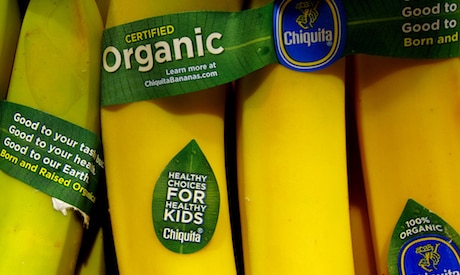
The USDA Organic seal seems pretty cut and dry. Foods that are organic aren’t treated with pesticides and herbicides, right? Well, not exactly. Contrary to what most people think organic doesn’t mean pesticide-free. It means that pesticides must be derived from natural sources and not synthetically manufactured. Additionally, pesticides must be applied using equipment that has not been used to apply synthetic materials for the past three years.
And while organics are healthier for you and the planet, there’s a lot more to it than just pesticides. Foods with the USDA Organic seal must abide by strict guidelines mandated by the federal government. Here are some of the guidelines that may surprise you.
1. “100 Percent Organic” and “Organic” aren’t the same thing.
Foods that carry the label “100 percent organic” must be made with ingredients that are all certified organic. Even additives used in processing must be certified organic. Foods labeled organic must be 95 percent organic and this excludes salt and water. Non-organic ingredients used must be on a national USDA list of acceptable non-organic ingredients (no GMOs).
Read more on organics.
2. “Made with Organic Ingredients” is also different from “Organic”.
In products labeled “Made with Organic Ingredients” at least 70 percent of ingredients must be certified organic and again, this excludes salt and water. Foods that are “Made with Organic Ingredients” cannot carry the USDA Organic seal but still must be audited by a third party testing facility. All organic ingredients must be certified but the remaining ingredients are NOT required to be on a national USDA list of acceptable non-organic ingredients. 3. Certified Organic Foods Ban Irradiation.
Irradiation is the controlled exposure of radiation in the form of x-rays or gamma rays which probe into foods, both packaged and bulk, killing mold, insects, and bacteria. Food irradiation also prevents sprouting and delays ripening of produce. A number of common foods are irradiated including spices, wheat flour, pork, poultry, beef, eggs, and imported fruits to name a few. But foods that carry the USDA Organic seal cannot be irradiated.
4. Certified Organic Foods Ban Sewage Sludge.
This one was a shocker to me. I still can’t imagine how foods conventional or not could be lawfully treated with sewage sludge. Sewage sludge is the semi solid sludge that’s leftover after sewage is treated and processed. In conventional foods it can be used for fertilizer but organic foods aren’t allowed to be treated with sewage sludge.
Read more on decoding organic labeling.
5. Certified Organic Foods Ban Genetically Engineered Ingredients.
The USDA Organic Rule states that "The use of genetically engineered organisms and their products are prohibited in any form or at any stage in organic production, processing or handling." This means an organic farmer can’t plant GMO seeds, an organic cow can’t eat GMO alfalfa or corn, and an organic soup producer can’t use any GMO ingredients. However, there is the threat of GMOs contaminating organic farms through seed drift, which is beyond the control of the farmer.
Basically, the organic seal is a big deal. Buying organic means I avoid feeding my family foods sprayed with synthetic pesticides, treated with irradiation or sewage sludge, or grown with GMOS. Bottom line–it’s worth the added cost.
Image: gord99




